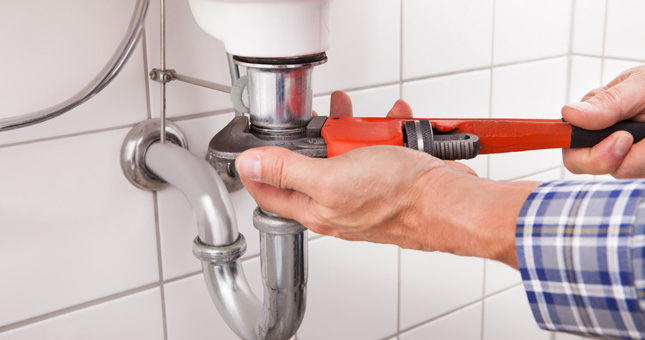

Plumbers have been named as the profession people would most value in their neighbours, according to a new survey by education charity The Edge Foundation.
The survey found that practical qualifications trump degrees as the pathway into the most highly rated skills in the community, finding that Brits would rather live next door to a plumber than a doctor.
Other valued skills such as electricians, builders, carpenters and mechanics – all 'hands-on' trades – appeared below plumbers in the top 10 list of the most valued neighbourhood occupations. Neighbours with jobs in law, psychology and politics came lower down the scale of perceived value, with actors coming bottom of the pile.
The report was produced to mark VQ Day 2015, the annual celebration of vocational qualifications. Edge found that nearly half of the population have required practical help over the last 12 months, with the majority (56%) likely to call upon a neighbour for assistance in a crisis.
Over the last 12 months, almost a third of Brits have suffered from plumbing problems, including blocked drains and radiator issues. A quarter of Brits (23%) are likely to call on their skilled neighbours in the event of their boiler or heating system breaking down, while one in five would ask for help with a blocked sink or drains.
In contrast, just eight percent of us would go turn to our neighbours for legal help or assistance with tax returns.
The top 10 most valued professions, in order, were:
The least valued professions people wanted in their neighbours included:
David Harbourne, acting CEO of the Edge Foundation, which leads VQ Day, said: "Over a third of us cite 'helpfulness' as the most important quality in our neighbours, with one in 10 highlighting practical skills specifically. While 'everybody needs good neighbours' still rings true, our research shows that in 2015 it is the technical, practical and vocational skills that really add value to communities."
When asked what skills, jobs or professions would be useful for neighbours to have in 20 years' time, plumbers retained the top spot, followed by electricians. Doctors remained third in the list, with IT technicians jumping up into seventh place.
Dr Kingsley Purdam, lecturer in Social Sciences at the University of Manchester, who collaborated with the Edge Foundation on the research and authored the accompanying report, added: "Throughout history there have always been changes in the types of skills that are valued by neighbours including help with childbirth when most women had their babies at home. As people's lives have changed – from the types of houses they live in and how they access services to the ways they work and spend their time – so have their relationships with their neighbours. However one thing remains constant – an ongoing reliance on neighbours for friendship, support and practical skills."
John Thompson, chief executive officer of the Association of Plumbing & Heating Contractors, the employers' trade association in England & Wales, commented: "It is pleasing that over a 20-year period and from a very low base, plumbing is now seen as one of the most popular vocations, as well as being the most valued neighbourhood skill in the UK. This is in part because it is irreplaceable; the only way to fix a plumbing issue is to call in a plumber! As a skill, it cannot be digitalised, making this one of the most future-proof occupations. This research shows that universal skills such as plumbing will be in-demand long into the future."
The study of 2,000 UK adults has also exposed our self-centredness as a nation, with 28% making more effort to get to know neighbours with skills that could be useful in the future than those without. And, while just 60% of us know our neighbours quite or very well, a higher number (75%) know what they do for a living - showing that it's what neighbours can bring to the table in terms of usefulness and skills that really matters.
If you'd like to keep up-to-date with the latest developments in the heating and plumbing industry, why not subscribe to our weekly newsletters? Just click the button below and you can ensure all the latest industry news and new product information lands in your inbox every week.